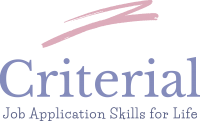
Today I’m going to show you how to address selection criteria when applying for a government job.
Explaining how to write selection criteria sounded simple enough on first thought, but like anything, the devil is in the detail. That’s why I’ve now put together a course that takes you through the process step by step. My online job application training courses teach you everything you need to know to write a winning job application and secure an interview.
I could equally explain how to change a tyre, in very practical steps but if I didn’t give you some context like where’s the spare, the jack, the tyre lever or the mobile phone with the number for your local automobile association; the act of changing a tyre occurs in isolation.
Nothing in life of course occurs in isolation, except wheelie bin videos which never happened before isolation.
So, strap yourself in, grab a stiff drink, a coffee or a herbal tea – whichever will soothe your mind the best, take a deep breath and find out how to address a selection criteria.
Selection Criteria: Understand Why They Are Like They Are
Old School
Many years ago, which is many many many for millennials, the government was a very old fashioned, stoic, behemoth kind of thing.
People went in as cadets when they were young people, and, fell out the other end in the sixties with a gold watch and no one was sure what they did all that time expect process forms and make people stand in lines.
If you are a Futurama fan Hermes bureaucrat song captures it well[1]. But the times changed, and the government modernised. It actually really did, come on, keep with me for a bit I’ll show you.
New School
It is now common to hear conversations about customer experience, journey mapping, customer avatars, focus groups and customer experience labs.
They even know their CX from their UX. If your mind isn’t yet blown, recruiting is also now as much you as your skills. No longer does the best qualified person necessarily get the job, because the best qualified statistician could well be a maths savant with no perceptible communication skills.
Who you are, how you think, your world views and priorities are actually important too.
That’s where selection criteria come in, because in that long document with so many words and seemingly pointless sections describing ‘stuff’, there are actually the answers to the question of How To Address A Selection Criteria.
Don’t believe me? Keep reading.
Look At The Trees Not The Forest
Hang on, isn’t that look at the forest not the trees?
Yes, it is, but when looking at how to address selection criteria, I want you to stop looking at the forest and see some of the trees, they’re quite interesting and much less overwhelming than the whole forest.
Instead of looking at;
“Ability to provide a quality service to customers, including those from culturally diverse backgrounds, and to professionally manage demanding situations with a high level of; customer service skills; oral communication skills; interpersonal skills; problem solving and conflict resolution skills”
…and thinking what the hell does that mean, look for the trees.
So in that forest it is:
- quality service to customers = customer service
- including those from culturally diverse backgrounds = range of customers
- professionally manage demanding situations = difficult customers
- high level = well developed, really good
- customer service skills = customer service
- oral communication skills = talking to people
- interpersonal skills = relating to people
- problem solving = customers with difficult problems
- conflict resolution skills = difficult customers with problems
What do all those words say? Tell us about how you manage difficult customers (including different from cultures) and difficult problems using your people and communication skills, to deliver good customer service.
Bit easier to think of an example now?
Be Realistic (Quality not Quantity)

Be a diamond.
Nothing says I want this job more than a cover letter that starts
“Dear Sir/Madam, I wish to apply for this job/role with your company/ organisation…”
Sarcasm clearly but that is a real example.
A recruiter is devoting time and effort, and time is money in a modern government, to finding a new staff member, that diamond in the rough from the whole mine of available diamonds.
So don’t be a lump of coal.
Yes I know both are carbon but I also know no employer has enough time to put you under that much pressure you eventually become the diamond you were destined to be!
If you can apply for fifty jobs with a generic, same every time cover letter, or, five with a customised, personally written response to selection criteria which is being asked for (which I’ll talk more about shortly) then submit the five.
The rider on that is choosing the five jobs you really think you have a good shot at getting.
Be realistic with yourself in choosing those five. There’s some tough questions you have to ask yourself in there about the position description and the criteria.
If it is a high level project manger role managing a billion dollar greenfield project that have never been done before, and, you have a PRINCE2 foundation qualification and have only managed small, not very complex projects, you need to ask yourself do you really think you have a chance of getting the job i.e. is the investment of time worth it?
If you think to yourself yes, then ask another question – this one about the people you’ll be competing against.
Will there likely be very experienced project managers who see this as a challenge and bring their considerable skills and weight of experience to their applications.
Of course they will.
Now ask yourself if you think you will be really competitive against them?
If you still say yes, then good luck with the application. If you realistically say to yourself it is a stretch too far then devote the time to another application.
Show you care
Devote the time to making sure your application is not a file/save as of your last one with the wrong position title in the header.
Make sure your spelling and grammar are spot on; i.e. get someone else to proof read it. These are people who might want to employ you – do you think they want someone whose spelling and grammar is sloppy?
Make sure you are giving what is asked for; not much less and not much more. How you approach the process says as much about you, if not more, than the words you put on the paper.
Answer The Question, Don’t Tell A Story
Nothing says I’ll be a great employee more than someone who sends a five page resume when the position description asked for a two page response to the points listed under the heading how you will be assessed for this role.
Aside of the quite obvious heading which was a clue to what you should have done, all that really says to the reader is you think you are so important that you I don’t have to follow instructions and can just give you what I think you should have and you can work it out.
A. nobody wants an employee who doesn’t follow instructions
B. the reader doesn’t have to read it just because you submitted it.
The sad news is you’re on strike two of three if you do that and are very likely just about to get struck out.
It’s pretty simple stuff, imagine you go to a restaurant and order a steak, but the waiter brings you a kale salad because they though that would be better for you.
Are you happy?
No, of course you’re not.
So, if the position description asks for a steak, cook a good steak and take the time to ask if it’s medium rare or medium well and cook it that way!
How you approach the process says as much about you, if not more, than the words you put on the paper.
How To Answer, Write, Address, Respond
I did say I’d tell you that the position description tells you in advance how to address a selection criteria.
So I will.
All that motherhood stuff about our values, our mission, our culture, how we do things etc is the stuff where they’re telling you the sort of person they want.
Without being too blunt, be that person.
Imagine you’re a doctor applying for a job at a hospital who say their culture is patient inclusive, patient choice is important and they value communication with patients about their choices.
As a doctor though you believe you know best for your patients and think they should just follow medical advice. Do you think you are the right fit for this organisation, do you think you will enjoy it, and do you think you will get the job?
You answered no I hope.
So here’s a tip, don’t apply. Save your time for a role you will have a better chance of getting, and you will possibly stay in longer term.
Make a list of their adjectives, use them in your application. They will resonate with the reader while they are reading your application.
But the criteria? Shoot me now.
I know, they can be wordy.
Once again, devote the time. Go through all the words and identify what they’re actually asking for.
Then what you need to do is give as case study of what you did in a real-life work example. Imagine your resume is your whole work career in brief details; a response to a selection criteria is like an in-depth showcase example where you talk through your skills.
It’s like giving the reader an opportunity to see you working through the example you tell. Be on point, be focussed, be specific about your skills, if you feel like you’re telling someone to suck an egg, you’re probably getting it right.
The reader probably doesn’t know you remember. This is your opportunity for them to see what you’re like.
Why Is All Of This Important?
You’re applying for a job.
I’ll make a bold assumption you want the job otherwise why would you be applying?
Guess what?
Coming second isn’t good enough. Second in this case is the first looser. Coming anything other than first means you get no job.
That’s where your mind needs to be when you begin writing the application. You’re an athlete and you want to go to the Olympics so training a bit occasionally isn’t going to cut it.
If you really want to sharpen your game, that is where we come in.
Get yourself a coach.
Spend some time learning the skills, invest in yourself and developing your job application skills.
There is no point in being the best at doing what you do if you can’t get a look in for a job.
Now I’d Like to hear From You
There you have it: How to address selection Criteria
Now I’d like to hear what you have to say:
Did you learn any new strategies for finding topic ideas from today’s post?
Or maybe you use a technique that I didn’t mention here.
Either way, let me know by leaving a quick comment below.
Share this post
